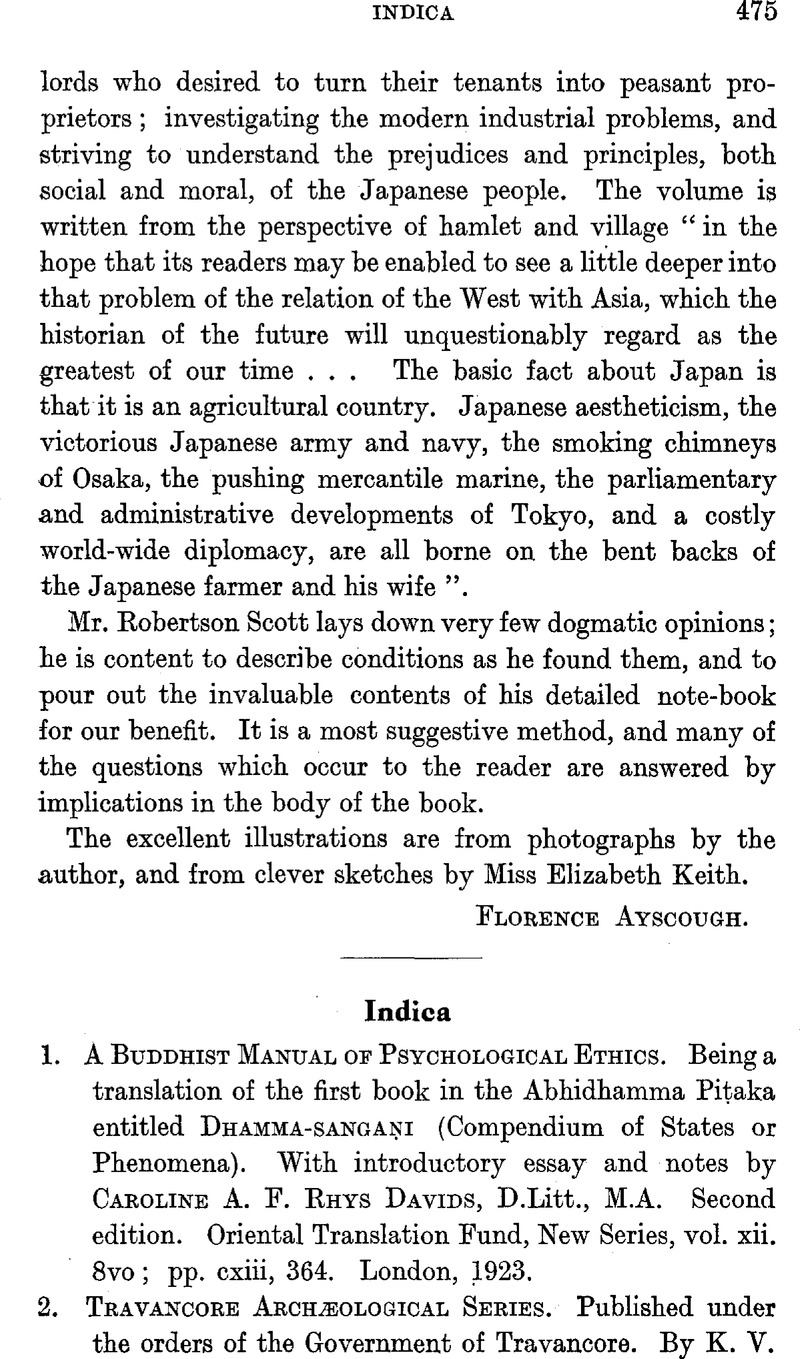No CrossRef data available.
Article contents
Indica - 1. A Buddhist Manual of Psychological Ethics. Being a translation of the first book in the Abhidhamma Piṭaka entitled Dhamma-sangaṇi (Compendium of States or Phenomena). With introductory essay and notes by Caroline A. F. Rhys Davids, D.Litt., M.A. Second edition. Oriental Translation Fund, New Series, vol. xii. 8vo; pp. cxiii, 364. London, 1923.
Review products
Published online by Cambridge University Press: 15 March 2011
Abstract

- Type
- Notices of Books
- Information
- Copyright
- Copyright © The Royal Asiatic Society 1924
References
page 479 note 1 This passage does not imply a Buddhist standpoint in the Upaniṣad: it might apply equally to e.g. the scheme of tattvas in Śaiva or Vaiṣṇava theology, in which all the tattvas have at least a provisional reality. But the use of dharma is singular, and very like that of Buddhist doctrine.
page 480 note 1 Cf. La Vallée Poussin, Théorie des Douze Causes, p. 9 ff.
page 480 note 2 In Dialogues of the Buddha, ii, p . 209, the words tayo āsavā, kāmâsavo bhavâsavo avijjásavo are translated “Three intoxicants, to wit, the poisons of sensuality, future life and ignorance” : this expands the idea a little too much .


